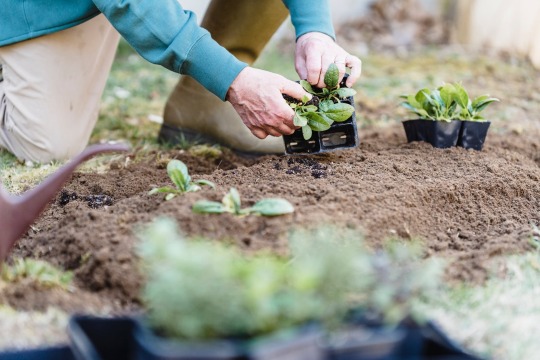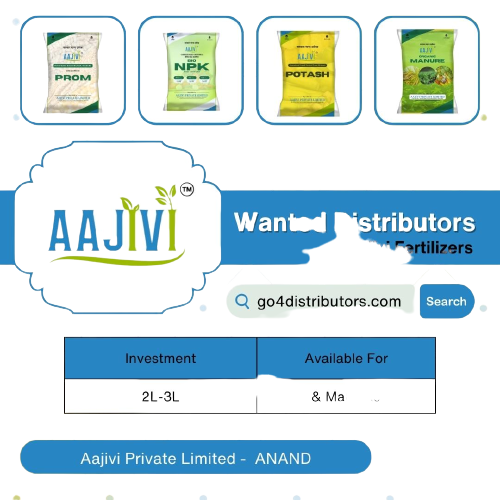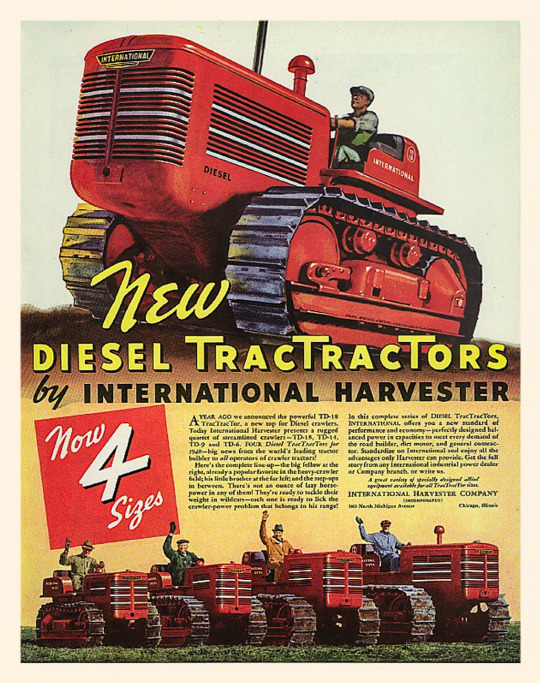#agribusinesses
Explore tagged Tumblr posts
Text
Step-by-Step: The Comprehensive Process of Agriculture
Welcome to a detailed exploration of the fascinating world of agriculture! In this article, we will take you on a journey through the step-by-step process of agriculture, uncovering the intricate techniques and practices that cultivate the food we enjoy every day. From seed selection to harvest, each stage plays a crucial role in producing high-quality crops.
Welcome to a detailed exploration of the fascinating world of agriculture! In this article, we will take you on a journey through the step-by-step process of agriculture, uncovering the intricate techniques and practices that cultivate the food we enjoy every day. From seed selection to harvest, each stage plays a crucial role in producing high-quality crops. Importance of Agriculture in…

View On WordPress
#aagriculture#Advantages of Agriculture#AGRI#agri business ideas#agri startup ideas#Agri-Markets#Agri-Tech Startups#agri.#Agribusiness#Agribusiness Sector#Agribusinesses#agricultural#agricultural communities#Agricultural Education#Agricultural Export Opportunities#Agricultural Industry#Agricultural Innovation#Agricultural Innovations#Agriculture#AmardeepSekhon1#Crop Management#farm#farm activities#Farmer#farming#Farming Challenges#Farming Communities#gardening#Irrigation#Organic farming
3 notes
·
View notes
Text

Organic Certification
Heerglobal Agritech Collaborations Pvt Ltd provides various agricultural services, including training in natural organic farming, organic certification assistance (NPOP/NOP standards), marketing support for farm produce, formation of Farmer Producer Organizations (FPOs) and Companies (FPCs), startup support for agribusinesses, and protective solutions for hi-tech farming.
For more information visit: https://bit.ly/44qfP9b
#heerglobal#heerglobalcollaboration#agriculture#organicfarming#naturalfarming#farming#fpo#fpc#greenhouse#nethouse#agristartup#agrostartup#agribusinesses#agroservices#organiccertificate#apeda#gopca#rsoca#certifications#OrganicCertification#nop#npop#gujarat
0 notes
Text
How Kingdom Bank is supporting agribusinesses to scale their ventures
Agriculture contributes approximately 33% of the country’s GDP and employing more than 40% of the total population. Kingdom Bank has invested in supporting the sector through various strategies that have proven effective, inclusive and impactful not only on its customers but also on the sector at large. Over the recent years, we have seen Government, the private sector and development agencies…

View On WordPress
0 notes
Text

Are you ready to cultivate success and reap the rewards in the booming agricultural industry? Aajivi Fertilizers invites you to seize an incredible opportunity by becoming a distributor of our premium agricultural products!
Click the link below👇👇👇
Visit:- https://www.go4distributors.com/productdetail/aajivi-pvt-ltd
#distributors#Distributorship#business#agriculture#fertilizer#potash#farming#agribusinesses#GrowthOpportunity#go4distributors
0 notes
Text
Agricultural Astrology 🌾❤
Agriculture is done according to the phases of the moon as it influences the growth of the crops/plants. 🌒
Seeds are generally planted during waxing moon phase, especially those plants which grow above the ground and is in need of water and light source. Due to the gravitational pull of the moon, the water flow is not that deep and is sufficient for plants that grow above the ground. There is constant light source both during day and night time from the sun and moon for the seeds to flourish.🌕
During waning moon phase, plants that grow below the ground like tubers can be planted as the gravitational pull of moon draws more water to the deepest of roots and edible parts under the ground flourishes.🌑
Destroying weeds or cutting plants/trees are usually done on the last quarter of lunar phase and planting anything new is avoided in this phase. 😌
Note: Your grandparents can tell you these details if they were in farming or someone doing traditional way of farming can also tell. This is not something new, it can also be present in internet if you want to learn more details, I just wanted to share this with y'all.😃
Now coming to the astrology part❤-
If you are someone who wants to do farming/gardening/agriculture as a main/leisure business, the first thing to note is presence of earth signs in your big three or a stellium, especially Taurus. 💚
Taurus Mars/Moon natives can naturally be inclined towards nature and greenery. Their hands are also lucky for any greenery related businesses.🤗
If you are a fire dominant, but still want to do something with lands, real estate can be your forte, especially if you are an Aries Mars or have a strong mars placement. Usually fire dominants have a pitta body type, their normal body temperature itself can be a little bit higher and plants can be more sensitive than we think. 😇
If you are an air dominant, growing flowering plants is more profitable. Libra venus or moon can be attracted to beautiful and colorful flowers. 🌸🌷
Water signs in big 3 or water dominant people can indulge in agriculture or horticulture, especially cancer. Even seeds are planted when the moon is in the zodiac sign of Cancer, Scorpio or Pisces for favorable and profitable results.🌴
Check for the strength of your 4H lord and his connection with your 10H and 11H lord if you want to do agriculture or planting as your major money making business. Also check for 7H lord if it is a business partnership. All of these house lords should not be afflicted, debilitated or in connection with malefic planets.🌾
Usually Leo ascendant and Capricorn ascendant do well in this sector, as their 4H is ruled by Mars who is the significator of lands. If Mars has beneficial aspects with Mercury, greenery based businesses can be beneficial for the native.🌱
Moon in 4H, especially in a water/earth sign can also be an indicator of being interested or feeling serene in nature and liking professions/leisure works related to lands you own. You can be a legal professional but still you may enjoy gardening or having a terrace garden/balcony plants at your home. It can be your comfort zone.🌻

Please feel free to comment down your questions or thoughts! 🤗
Let's Learn and Grow Together!💅💋
With Love-Yashi❤⚡
Here's my Masterlist! 💖
#astrology#blogs#astro placements#birth chart#natal chart#astro observations#vedic astro observations#astro notes#astro community#planets#mercury#mars#aries#leo#sagittarius#cancer#scorpio#pisces#taurus#astroblr#zodiac#agriculture#agribusiness#moon
115 notes
·
View notes
Text
The agricultural lobby is a sprawling, complex machine with vast financial resources, deep political connections and a sophisticated network of legal and public relations experts. “The farm lobby has been one of the most successful lobbies in Europe in terms of relentlessly getting what they want over a very long time,” says Ariel Brunner, Europe director of non-governmental organisation BirdLife International. Industry groups spend between €9.35mn and €11.54mn a year lobbying Brussels alone, according to a recent report by the Changing Markets Foundation, another NGO. In the US, agricultural trade associations are “enormously powerful”, says Ben Lilliston, director of rural strategies and climate change at the Institute for Agriculture and Trade Policy. “Our farm policy is very much their policy.” The sector’s spending on US lobbying rose from $145mn in 2019 to $177mn last year, more than the total big oil and gas spent, according to an analysis by the Union of Concerned Scientists (UCS). In Brazil, where agribusiness accounts for a quarter of GDP, the Instituto Pensar Agropecuária is “the most influential lobbying group”, according to Caio Pompeia, an anthropologist and researcher at the University of São Paulo. “It combines economic strength with clearly defined aims, a well-executed strategy and political intelligence,” he adds. As a result of this reach, big agribusinesses and farmers have successfully secured exemptions from stringent environmental regulations, won significant subsidies and maintained favourable tax breaks.
[...]
Research suggests that big farms and landowners reap far greater benefits from subsidy packages than small-scale growers, even though the latter are often the public face of lobbying efforts. “It’ll almost always be a farmer testifying before Congress or talking to the press, rather than the CEO of JBS,” says Lilliston. But between 1995 and 2023, some 27 per cent of subsidies to farmers in the US went to the richest 1 per cent of recipients, according to NGO the Environmental Working Group. In the EU, 80 per cent of the cash handed out under the CAP goes to just 20 per cent of farms.
22 August 2024
72 notes
·
View notes
Text
One of the most infamous modern-day monopolies is the biotech agricultural company Monsanto. The company specializes in environmentally toxic, genetically modified crops and seeds, and utilizes patents to dominate seed markets. In India, 95 percent of cottonseed is controlled by Monsanto, as Indian companies have been locked into joint ventures and licensing arrangements for the last couple of decades. Every patented seed is the "intellectual property" of Monsanto, entitling them to royalties, thereby raising the costs of seeds.
Perhaps most shockingly, these patented seeds have come to include "gene use restriction technology" — seeds that will not produce viable offspring seeds. In this way farmers are forced into buying new seeds every year, rather than harvesting them out of the previous year's crops. The swelling of Indian farmers' debt — along with increasing farmer suicides — are a product of what Indian environmentalist and ecofeminist Vandana Shiva has dubbed Monsanto's "seeds of suicide."
-Hadas Thier, A People’s Guide to Capitalism
35 notes
·
View notes
Text
Welcome to some random more disappointing updates about farm life.
Things in a life like this are constantly changing and with all the good comes some sad. Though aint none of you know that much about me or anything I just wanted a place to post my thoughts.
After a lengthy conversation, I've made the decision to sell one of my Gilts (female pig) Dolly. She has been posted on this blog before. I got her a few months back as a prospect gilt and show pig, she has been a small grower and didn't make weight in time. So since then (the first week of August) she has been a freeloader. I love her and she was going to be a breeding sow next year, but since my younger siblings decided to start showing hogs we don't have the space or extra change to feed a mouth that can't turn a profit. (that may sound harsh but those are the things I have to think about when it comes to my operation). However since she carries potential, and is sired by an Ohio State Champion boar Ive decided to sell her as a breeding prospect and not bring her to the sales barn. On sadder news, as this conversation came up about getting rid of some of the animals we can't have a use for, Tick came into the conversation. Tick is my two-year-old pet Angus bull, he was born a second twin and due to inbreeding of club calf genetics, he has dwarfism. Along with that, he has something called Spastic Paresis. This is an unfixable muscular disability, that usually affects dairy cattle, and which can't be cured but can be livable if the animal is not in pain. During the summertime he was thriving, we got him in August of 2023, and he was steady, healthy, and not in pain since. But as of recent months, we've seen a slow decline in quality of life. My #1 goal is to make sure all my animals have a quality of life and when they don't the only morally correct thing to do is humane euthanasia. Though I said he was mine, it is better to say he is my mom's pet bull, and she has a tough time making these decisions. She has been putting it off but has also realized that as the colder months come he will only get worse. He does not seem to be in pain but he does seem uncomfortable, his mobility has gotten worse and so has his ability to hold on to weight. So in the next months, we will have to put him to sleep and bury him under the Oak tree. These types of decisions, both of them, are hard but necessary to make. Due to the stigma against farmers, you don't really hear this side of the industry but I am not going to hide it. Through both good and bad we have to make choices.
#yap session#farm#farmer#farm life#agriculture#ag#cow#cows#cute cows#sad#homestead#midwest#rural#pig#pigs#farming#agribusiness#ohio
12 notes
·
View notes
Text
youtube
"You have to do farming to grow food. Otherwise, how else can you eat." So let's see what the Democrats have to say about Agriculture. Like more Corn subsidies, maybe? Who knows. But I will read the Democratic Party Platform to find out.
#farming#agriculture#agribusiness#growing food#democrats#democratic party#youtube#politics#capitalism#anarchism#socialism#election 2024#2024 elections#kamala harris#democratic party platform#democratic party platform 2024#Youtube
7 notes
·
View notes
Text



Good simple farm logo and great fall pics; like and follow for more agriculture logos!
#agriculture logos #agriculture #farming #farm #farmer #farm life #agri #agribusiness #farmers market #small farm #logo #logo design #logo inspiration
#farm#farming#agriculture#farmlife#small farm#farmers#logo design#garden#pumpkin#logo inspiration#agribusiness#farmers market
8 notes
·
View notes
Text
Leveraging Technology: How Big Businesses Can Profit from Agricultural Innovation
In today’s rapidly evolving business landscape, technological innovation has become a key driver of growth and competitive advantage. This holds particularly true in the agricultural sector, where big businesses are increasingly leveraging cutting-edge technology to revolutionize operations and drive profitability. From precision farming and drone technology to AI-driven analytics and IoT-based…
View On WordPress
0 notes
Text

Understanding Organic Certification: Your Guide to NPOP and NOP Standards for Farmers, Food Processors, and Traders
Discover the benefits of NPOP and NOP organic certification for farmers, processors, and traders. Learn about our services and at Heerglobal Agritech Collaborations. Contact us today!
For more information visit: https://bit.ly/3Rc8ZyK
#agriculture#organicfarming#naturalfarming#farming#fpo#fpc#greenhouse#nethouse#agristartup#agrostartup#agribusinesses#agroservices#organiccertificate#apeda#gopca#rsoca#certifications#OrganicCertification#nop#npop#gujarat#heerglobal#heerglobalcollaboration
0 notes
Text




Indiana / Illinois. Corn.
#yzshot#travel#street photography#street#america#Indiana#Illinois#farmcore#corn#agriculture#agribusiness#agricoltura
8 notes
·
View notes
Text
Brazil has managed to significantly reduce deforestation in the Amazon forest, but the devastation continues to increase in other important ecosystems. Among the hardest hit is the Cerrado, a savanna-like environment which has become a preferred target for farms looking to increase the production of commodities such as soy, corn, cotton, and beef. Paulo Cabral, traveled to the country’s heartland to investigate.
7 notes
·
View notes
Text
researching deer species in brazil and getting so so so sad. what did they do to them :(

#qrevo.txt#cervo-do-pantanal my beloved#cervo-do-pantanal tELL ME WHO DID THIS TO YOU 😭😭😭😭😭😭😭😭😭#i'm gonna kill the entire agribusiness with my own two hands THESE DEVILISH IMPS
7 notes
·
View notes
Text

New Diesel TracTracTors by International Harvester - 1939.
#vintage advertising#vintage illustration#tractors#vintage tractors#farming#farm equipment#vintage farm equipment#international harvester#farmers#agribusiness#agriculture
8 notes
·
View notes